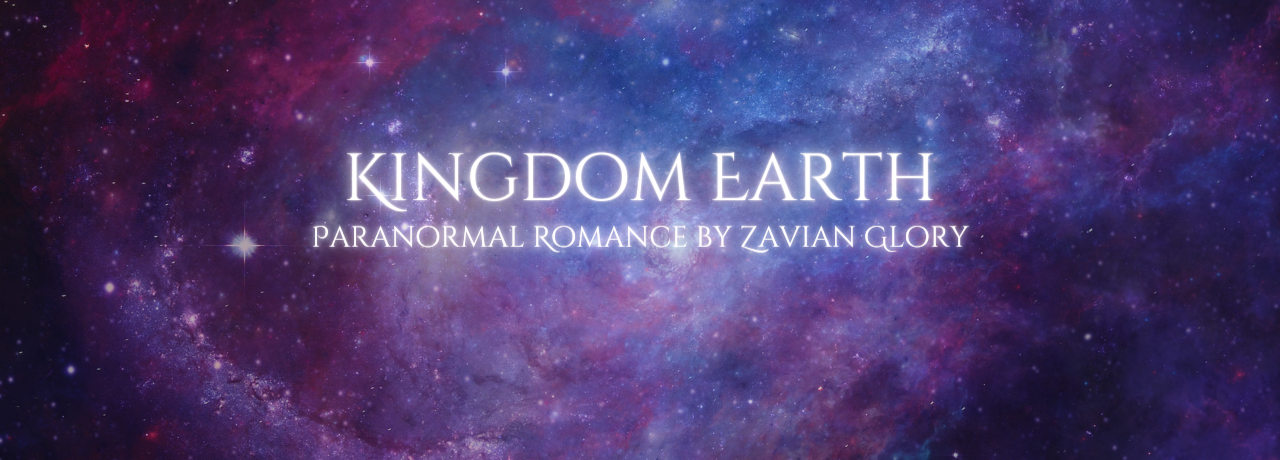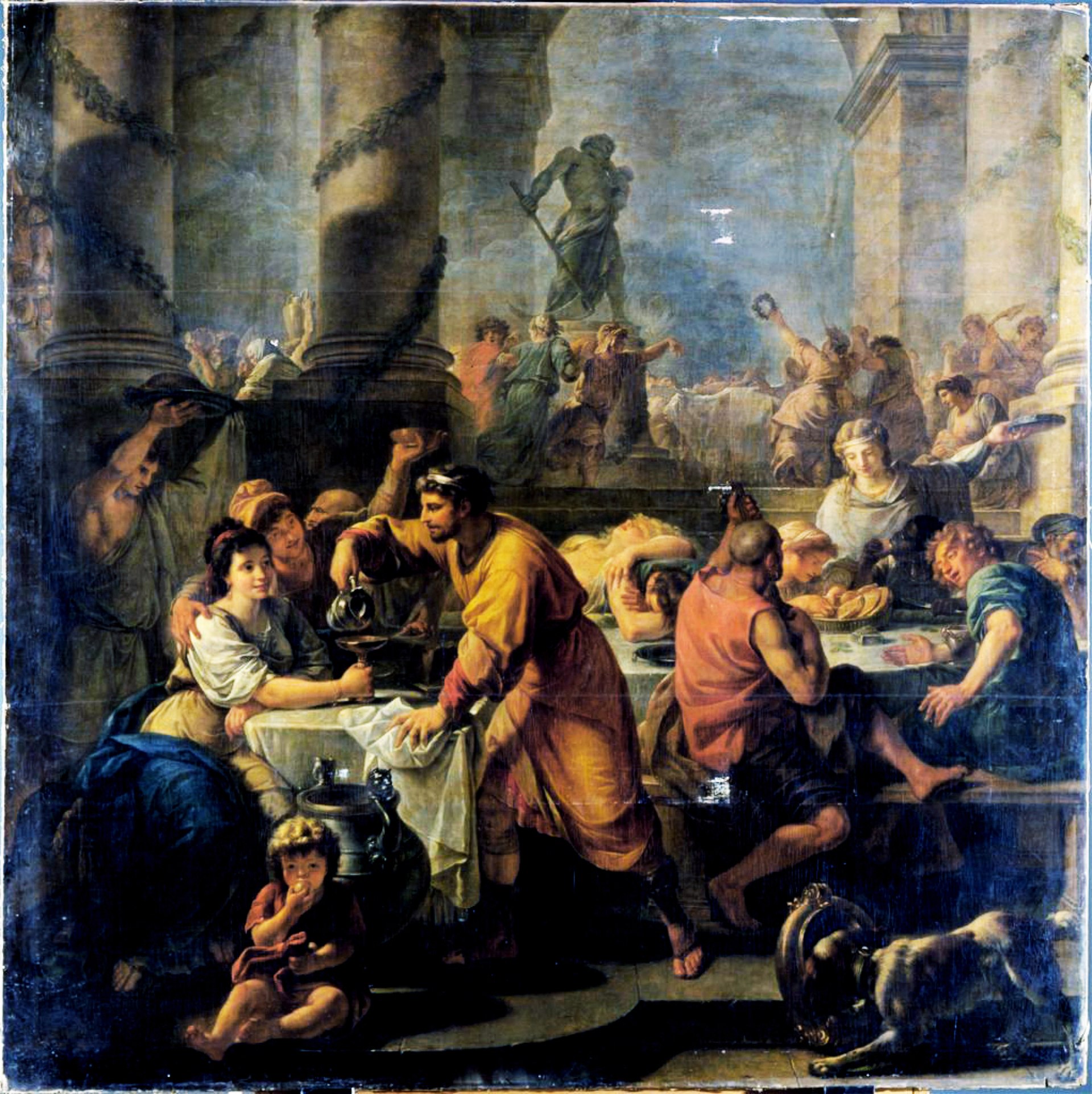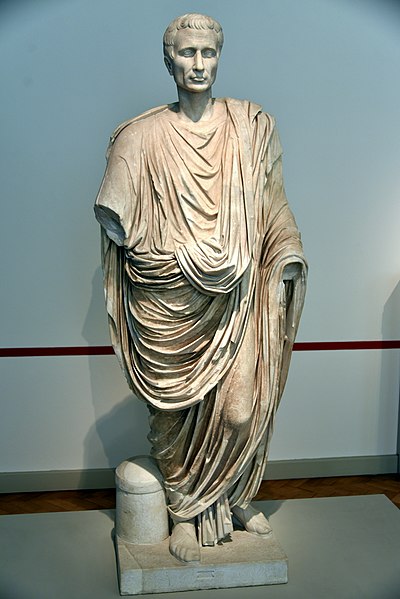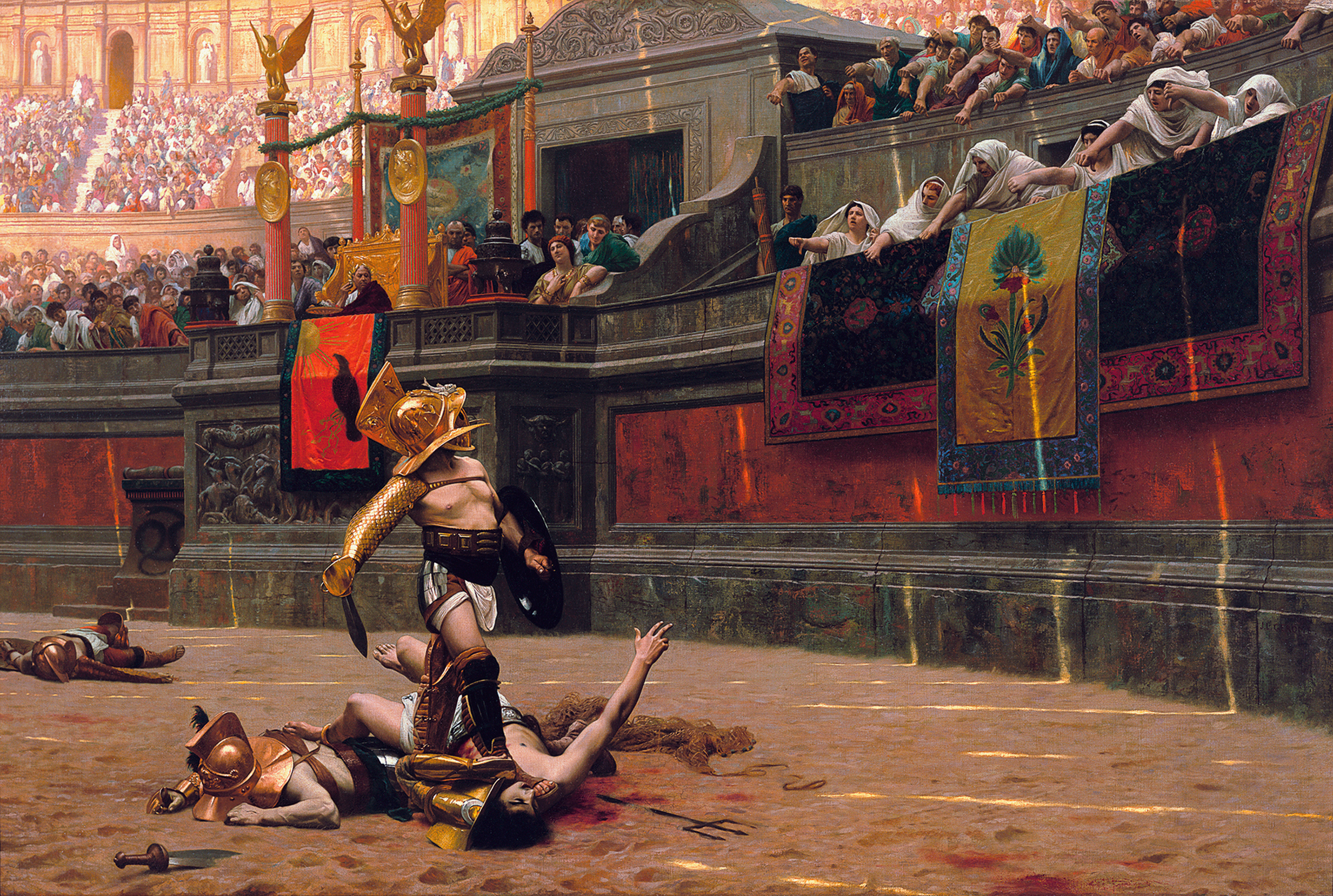Saturnalia
Because of their connection to their Roman heritage, werewolves continue to celebrate the festival of Saturnalia in December. The holiday is currently celebrated from December 22nd to December 28th, with the 25th, the central day, being Dies Natalis Solis Invicti, "the Birth of the Invincible Sun." For all werewolves this is the biggest and most important holiday of the year.
History
Saturnalia was traditionally celebrated as a festival of several days, held during December in ancient Rome. Werewolves kept many of the traditions of the festival over time, modifying it as they needed or wanted to. The public festival was done away with for the safety of the werewolf population, sending all aspects of the holiday into the private homes of werewolf families. Aspects of the festivities calling for sacrifices have been replaced with symbolic "first cuts" of prepared roasts or cakes. Other aspects related to the role-reversal between slaves and masters were changed to role-reversals between children and adults.
The holiday is also no longer strictly religious, as after the Fall of the Angels it became known that the Roman gods of Saturn, Sol Invictus, and others, had actually been angels all along. While many werewolves still appreciate those angels for their help in establishing early Roman culture, the revelation led to many not wanting to celebrate in the name of any deity, not even God. The Fall created many complicated emotions and thoughts among werewolves, vampires, and others. Instead of honoring Saturn and Sol Invictus as they once had, werewolves now focus Dies Natalis Solis Invicti on the actual sun, not a supernatural embodiment of it.
Most parts of the holiday celebration, such as gift giving, drinking, gaming, and feasting, continue into the modern day. Non-werewolf friends and partners all also frequent participants in the celebrations. The length of the holiday allows some werewolves to spend parts of the holiday in multiple households with as many loved ones as they can visit.
Saturnalia is especially important when the full moon falls during the holiday festivities, and children conceived or born during Saturnalia are considered extra important to the continuation of werewolf culture.
Components and tools
A celebration of Saturnalia is not complete without plenty of food, alcohol, party games, and plenty of gifts - both cheap ones and at least one thoughtful one for each guest. Most guests wear bright colors and toga parties on at least one day of the celebrations are fairly standard. The use of bells for wearing and ringing playfully is also common.
Participants
Those hosting a Saturnalia gathering must have room for all of their guests to stay for the entire week if they so choose. Typically the one in the family group with the largest house is the one who hosts. They are also charged with decorating for the holiday, which often includes many decorations frequently associated with Christmas in the 21st century, including brightly colored lights both inside and outside the house, garlands, and a tree to be decorated. The host is also responsible for purchasing or making a welcoming gift for all guests, and for supplying some of the food and drinks.
All guests are responsible for bringing food and drinks to the host's home, and for sharing in the cost to purchase any additional groceries needed during the week. They are also expected to bring gifts for all other guests and hosts to exchange throughout the week. The gifting process varies by family group. Some have each individual bring multiple low-cost gifts for all others, with one more expensive and thoughtful one, so that each guest gets a gift from them each night. Others bring one gift for each person and gift a different person each night. Others choose all low-cost gifts and pile them all together so that each night everyone chooses one gift from the pile. Some use gag gifts while others put some thought into the gifting tradition.
Children present are the ones to decide what games are played or what other activities are done each evening, usually between dinner and 10pm, or midnight, depending on the group's choice.
Observance
These typical activities may vary based on whether or not the full moon falls during Saturnalia. If it does, some activities would involve embracing werewolf nature. Additionally, not all guests stay for the entirety of the celebrations, especially if they have multiple festivities they wish to take part in.
December 22nd: The first day of Saturnalia; This is when all guests arrive, usually before sundown. The day is typically spent catching up and arranging the food, drinks, gifts, and sleeping arrangements. The first meal is typically a casual one, sometimes even pizza or other restuarant-prepared meals, and alcoholic drinks are a staple for those who want them. After dinner, guests help to decorate the tree with brightly colored ornaments. Guests are typically gifted a special ornament they can take home at the end of the celebrations. Family-freindly games are then played until the children go to bed. Adults typically stay up later and play more games or socialize.
December 23rd: Hosts typically make breakfast and everyone rises at their own time. Breakfast is made available all morning. The day is spent socializing, playing games, or watching movies or other things on TV. Some families may stage wrestling matches or mock combat matches. Snacks and alcohol are the main foods between breakfast and dinner, which is usually a prepared meal made by the hosts with the help of the guests. After dinner, the youngest guest is crowned the "king" (or whatever title they want instead) and gets to choose the evening's activities, which include the exchanging of small gifts. After the children go to bed, the adults again stay up to socialize or play games.
December 24th: Guests prepare breakfast and all others rise as they see fit as again breakfast is kept available all morning. The day continues much as the one previous, but games are played throughout the day to determine which of the children will be that evening's "king." A roast ham is typically prepared for dinner, with the "king" making the first cut into it. After dinner the "king" chooses the evening's activities and when the small presents will be exchanged. After the children go to bed, the adults attempt to stay up until dawn, playing games, drinking, and socializing, though one adult may volunteer to go to bed with the children so as to watch over them in the morning.
December 25th: This is Dies Natalis Solis Invicti, or "the Birth of the Invincible Sun." Adults who have stayed up all night watch the sun rise, toasting the sun's return. They then go to sleep for a few hours, but all are expected to wake by noon. Those who don't are woken by the children or youngest adult running about and yelling "io Saturnalia!" to wake them. After a breakfast of cookies and small cakes frosted with yellow icing to represent the sun, adults take part in mock gladatorial matches, some even doing so in reproduction Roman armor. The winners of these matches are awarded prizes that are typically homemade certificates, wreaths, or T-shirts declaring that they won a Saturnalia match. Some families allow children their own matches as well. After a dinner, typically a ham-based dish, there is a Saturnalia cake. The eldest one present cuts and serves the cake. There is a single nut baked into the cake and the one who finds it is that night's "king," even if they are not one of the children. They then choose what games will be played and when gifts will be exchanged. The gift given this night is often one that is more expensive and thoughtful than the other gifts, and each guest usually gives one thoughtful gift to every other person present. Most adults go to bed early this night after having stayed up all night previously.
December 26th: This day is usually more focused on games even than the previous days. Gambling games for candy or tokens take up most of the day, sometimes being played in a tournament format. As with all previous days, eating and drinking is also a major part of the day. By the end of the day the winners of the games can use their tokens to "purchase" prizes or favors, sometimes even the status of "king" for the evening, again choosing the night's activities until the children go to bed.
December 27th: This day is typically used by many family groups for a toga party again filled with games, food, and drink after a hot breakfast made by the hosts. Those who are into it sometimes use this day for drag, also. A new "king" is chosen, typically at random, for the evening from any of the children who have not yet had the honor.
December 28th: The final day of Saturnalia. This day is for doing any activities that haven't happened yet, including allowing any remaining children to serve as "king" for a period of time. The meals and snacks are typically comprised of anything left over from the other days. The final gifts are exchanged that night and guests begin to pack their things.
December 29th: Guests are expected to rise early and help clean up from the week. Once everything is how the hosts want it, goodbyes are said and guests go on their way.









Nice article, very detailed and well though out!
For your consideration, my submissions for the WorldAnvil Worldbuilding Awards 2024. (I've also included some of my favorites other worldbuilders.)
Thank you!